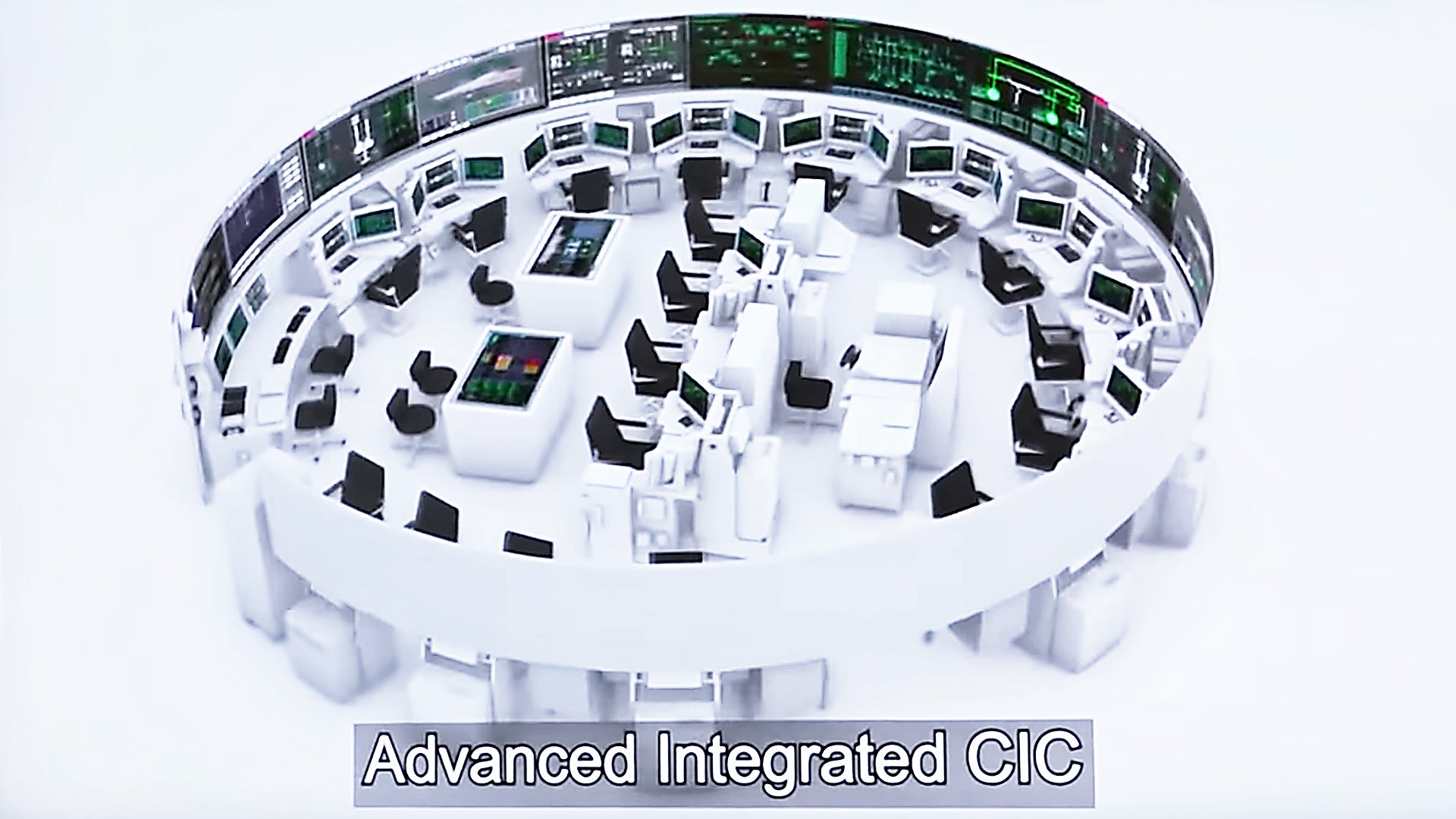Japan’s new 30FFM Multi-Function Frigate will soon be under construction and it is set to become the workhorse of the country’s increasingly capable naval forces. The vessels will pack a number of attractive features, including a stealthy design, high-speed, new active electronically scanned array (AESA) radar system, stern-launched small boat capability, the ability to launch and recover unmanned systems, and a Mark 41 vertical launch system. Yet the ship’s combat information center (CIC) may be its most outstanding quality.
CICs are a fighting ship’s brain. Whereas the bridge deals with navigation, the CIC focuses on fighting the ship. In the confines of the CIC, sensor, communications, weapons control, and general situational information is fused—via automation and manpower— and tactical decision-making occurs. Here is a basic and modern primer on CICs from the U.S. Navy:

Looking far more like the bridge on a Starfleet vessel than a traditional CIC, the so-called Advanced Integrated CIC (AICIC) aboard a 30FFM is buried deep in the ship for maximum survivability and virtually any remote task can be completed from its confines. Wrapped around the outer edges with large displays, beyond controlling the tactical situation at any given time, the AICIC will allow its sailors to execute steering, engineering, navigation, damage control, fire suppression, communications, and other functions via its multi-functional consoles and open-architecture software.
Its circular video wall can also display distributed aperture imagery, basically giving its sailors a synthetic view of the ship’s surroundings during day and night via cameras arrayed around the vessel’s superstructure. Apparently, augmented reality will also be a part of the system, displaying key information, such as target tracks and potential hazards, over external views.
This kind of technology is proliferating to new platforms, including ground vehicles and seagoing vessels. You can read more about it in this recent article of ours.
According to the always fantastic Naval News, AICIC is made up of an outer rim of 14 multi-function consoles, a center helm station, four more multi-function consoles for command staff and two large table-like displays used for mission planning and navigation.
Naval News writes:
This new 360° video wall feature by MHI [Mitsubishi Heavy Industries] offers maximum flexibility to the crew of the future frigate, it makes the operation of the frigate more secure and offers interesting options in terms of redundancy and back-up (if the bridge or engine control are damage, the ships may still be operated from inside the CIC).
Here’s a better look at the ship in general and its innovative CIC design:

Combat Information Centers are morphing from the dark, cramped, bulky, console-packed affairs of yesteryear into far more modern, collaborative, and expansive spaces. The latest baseline update of the Aegis Combat System has prompted a far less ambitious reconfiguration of CICs aboard U.S. Navy destroyers and cruisers it is installed on. Yet the U.S. Navy’s new Zumwalt class destroyers feature a CIC that is more akin what you would find in an underground command center or a Combined Air Operations Center (CAOC) than on a fighting ship. It also is designed to possess much of the same flexibility as the 30FFM’s AICIC, but it is a far more cavernous arrangement and focuses on strategic, as well as tactical command and control functions. You can read all about it in this past feature of mine.

It will be interesting to see the 30FFM’s AICIC once the first ship is delivered, which should occur around 2022. As for Zumwalt’s huge shipboard command center, we still haven’t seen any photos of it, but it should have been installed recently along with the ship’s other missionized systems and features.
Regardless, it seems as if science fiction is finally meeting reality when it comes to the high-tech command centers installed aboard modern warships.
Contact the author: Tyler@thedrive.com
